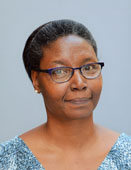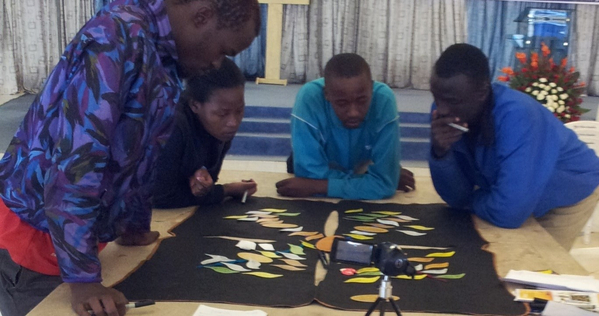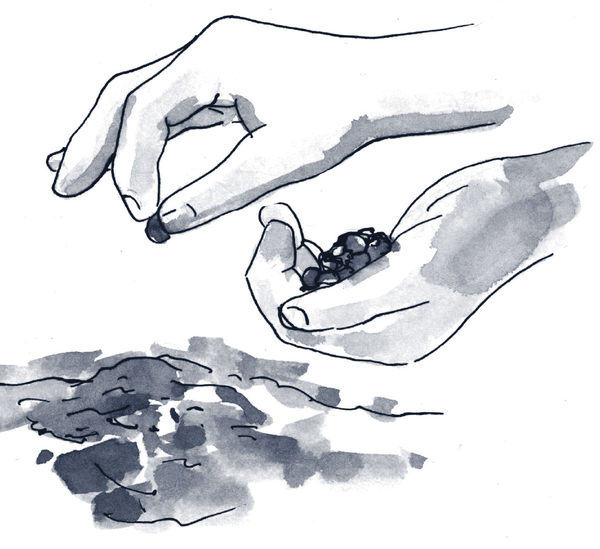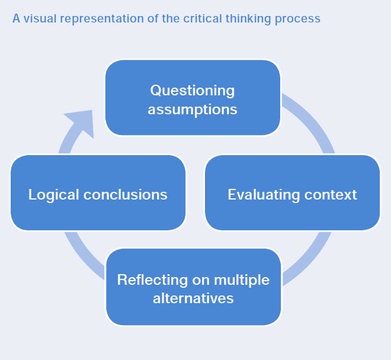Critical thinking as a core competence for the future
 Nancy Njiraini
Nancy Njiraini
University of Glasgow Scotland,
UK
Abstract – The idea of learning as a transfer of knowledge pure and simple has been increasingly challenged. A complex future requires tools and abilities enabling us to respond effectively without needing to rely on others. This article explores the role of creativity, critical and independent thinking as well as core skills and competences that are useful for a self-reliant individual. Educators need to interact with learners in ways that raise their consciousness to question assumptions about established routines and systems and motivate learners towards critical thinking in life and in learning.
We live in an era of change. Technology and globalisation are two strong driving forces, changing the way we interact, learn and work. Advances in technology mean that competences such as communication include new and more complex skill sets compared to only a few years ago. We are increasingly attending virtual meetings, and learning activities are often conducted online. More and more services, such as filling in your tax return, applying for a job and so on, are done online. Snail mail is now almost obsolete. Trends and progress in technology have made information readily available, and it comes from many sources. This means that there is a need to be selective in the way we consume information. We also need to apply critical thinking when it comes to processing it. New realities and ways of life to which we are exposed create different and complex interactions that require skills in order to act quickly, independently and thoughtfully as well as to think critically in order to question and analyse information and to make effective decisions.
The need for critical thinking
A fast-paced world requires skills and competences that can keep up with the rapid changes and enable us to adapt to society and actively participate in all spheres of social and economic life. Surviving in the future therefore has to include skills and competences that aim to promote the ability to think in a critical way through life experiences from a personal, civic, social and even an economic perspective. Borrowing from

Community learners in Kenya applying critical thinking. © Nancy Njiraini
Dewey and Piaget, Kolb (1984) developed ways of enhancing critical thinking through the model of experiential learning based on
- experience,
- reflection on experience,
- forming abstract concepts arising from that reflection, and finally
- testing the concepts.
Such reflective practices can promote autonomous learning, and aim to develop understanding and critical thinking skills. In this article, I will consider competences by first looking at capabilities and focusing on the role of self-reliance as a component of critical thinking, after which I will review the role of a critical being and finally look at how critical thinking is a practical competence for the future.
“Surviving in the future therefore has to include skills and competences that aim to promote the ability to think in a critical way through life experiences from a personal, civic, social and even an economic perspective.”
Developing practical capabilities
Human beings progress in life through interaction with their environment, family, home, community and society at large. As we plan our progress and development, we create situations that shape and optimise our practical capabilities to manage our environments. This requires flexible and practical capabilities to shape the physical, social, technological and cultural ways that will nurture positive progress. Those abilities involve empowerment and self-reliance, to be creative in life choices that will shape that future in the way that we envision. Supporting the development of such capabilities should involve empowering individuals and communities to be able to “do” and to “be”. According to Nussbaum (2011), this capability to do and to be is about the availability of genuine opportunities where questions such as “what are people able to do” are considered, shifting the emphasis onto skills that create opportunity. This approach looks at abilities to evolve and to use knowledge effectively in order to strengthen skills and competences for life and work through critical thinking. We knew this in the past, but we have lost it. Capabilities to operate and act in this way have been eroded over time, mostly during the period of colonisation, where capabilities and confidence to act independently were suppressed, particularly in Africa.

The effects of colonialism on self-reliance
Colonisation in Africa was built on perceived ideas of the levels of the human race and the place of the African people who, it was felt, needed to be modernised. Political, health, education and cultural systems were set up based on the colonisers’ culture, and indigenous systems were disregarded as inadequate or non-existent. These systems created a limited sense of who the communities were, leading to experiences of self-hate, low self-esteem and lack of respect for one’s own culture and the start of an experience of a peculiar type of psychological dependency on others (Woolman, 2001). When most African countries gained independence in the 1960s, ideologies such as materialism and consumerism were embraced by indigenous peoples, and colonial-style leadership continued, embracing repressive and undemocratic systems and structures which the new leaders had observed and learnt. The citizens considered themselves free and independent, but they were still mentally colonised, still dependent on the former coloniser to provide guidance (Mungazi, 1996). Colonisation, due to its oppressive ways, had rendered the indigenous people incapable of practicing creativity, and had left them without the ability to mould their own lives.
The role of critical thinking in self-reliance
Progress and staying competitive in a complex future is an elaborate process of making choices and freedom to make those choices. This requires education and learning that look beyond creating skills for livelihood and income generation which are narrow in the way they focus on a set of skills for particular tasks. The perceived potential for skills which generate short-term profits will take individuals only so far. Dilemmas and challenges that arise from a complex environment would need skills that enable one to examine and reflect on issues and grasp current events in the world in a way that can support practical decision-making. Critical thinking is a skill that enables one to “self-evolve” through reflection, evaluation and decision-making. This may lead to improved self-esteem and self-confidence. In adult learning situations, this becomes essential when it comes to enabling learners to identify obstacles that prevent them from reaching their goals. Critical thinking enables them to operate in a self-reliant and efficient way in a potentially complex future, and to become capable and critical beings.
The critical being
Reflecting and acting in a critical way is more than a set of skills, it is an approach to life centred on the concept of a “critical being”. This concept embraces critical reflection, critical self-evaluation and critical action where a critical person becomes more than a critical thinker. He/she is able to critically engage with the world through self-critique and challenging that which appears to be self-evident. Barnett (1997) suggested a way of looking at being critical in levels made up of critical reason (knowledge), critical reflection (the self) and critical action (the world), where he emphasised the need to contest and challenge issues in order to be free of beliefs and knowledge systems that limit potential.
Some learning processes often focus on outcomes that have defined and pre-determined competences, which may limit critical thought due to the defined outcome. If learning encourages open conversation, where the outcome is open to a learner’s circumstances based on the issues that they are addressing, critical thinking and open-ended reflections on concepts take place. This way individuals can look beyond dependence on a defined way of thinking or working, and become self-reliant by developing a flexible set of skills that fit into a rapidly-moving world that is continually reshaping itself.
Perception of the critical being in the future
Educators and leaders have an obligation to support adult learners in overcoming the effects of domination that eroded self-efficacy and gave way to a mind-set of inadequacy. Community development initiatives, for example, continually rely on aid and on the support of government and international agencies to solve local problems. This lack of belief in individual and community ability is perpetuated by an education system that does not expose learners to creative and critical perspectives and exposes citizens to a future of dependence. If competences do not include critical thinking, then when a crisis situation arises, the reflective process that can enable one to address the situation is ineffective.
In critical thinking, the learner actively constructs new ideas or concepts and supports a learner’s efforts towards becoming aware of their surroundings beyond their immediate contacts. (Merriam and Caffarella, 1999). They become aware that any opportunity can be a learning opportunity, and that it does not have to be in a certain setting for it to qualify as a learning process. This awareness of opportunities for learning can enhance experiences and offer an opportunity to reflect and to identify useful ways to navigate through the myriad of issues, both current ones and those which are to be faced in the future. Exercising thinking in a critical manner as a way of life has the potential to translate into a transformation of learners’ outlook on life in general.
Critical thinking in community learning – a Kenyan example
Approaches to community learning should include a process that explores skills and competences for self-reliance through critical thinking as a way to survive now and in the future. Community and adult educators should think creatively, and also support learners in thinking and acting creatively and critically in their approach to life. This can begin with the way in which educators interact with the learners in order to explore and expose that potential using creative methods that encourage opportunities for thought, discussion and personal expression. In my research study with Kenyan communities, evidence showed that participants had not been exposed to learning and working in ways that enabled them to reflect and think critically and to engage with issues. When presented with opportunities to work in this way, the groups demonstrated innate capabilities to reflect and evaluate situations and showed a desire to develop skills that could be useful for their decision-making process. In this research process, the participants were engaged in a way that required them to reflect on, evaluate and respond to questions presented to them, and then to discuss their ideas emerging from that thinking process. By working with community participants in this way, we demonstrated faith in the participants’ abilities to apply themselves. By respecting the ideas that emerged, learners were able to recognise their capabilities to think and act independently, and to begin to work towards building confidence and self-belief.
Critical thinking as a future competence
If critical thinking helps us make better informed decisions, then we are able to avoid certain mistakes that would have occurred unnecessarily. There is no specific guarantee that critical thinking will provide success and happiness, but it is useful when it comes to avoiding dependence on others and choices that may lead to unnecessary difficulties. In the words of earlier thinkers such as Immanuel Kant, critical thinking liberates us, guides us through the journey of finding meaning for ourselves, and helps us understand why we believe what we believe. As critical thinkers or critical beings, we do not naively accept knowledge or situations, but we re-think our circumstances based on the evidence that we gather, in order to improve our situations. Critical thinking is not being suggested here as the perfect route to freeing man from what Kant (1784) referred to as “immaturity”, but it can act as a starting point for assessing what one needs.
When critical thinking is used constructively with the purpose of attempting to understand our knowledge and to reason things out, then we are able to put issues into perspective, and this can be a positive process. Critical thinking allows us to question things, and this in turn enables us to construct new ideas from knowledge that we have and to build on that knowledge rather than depending on other people to “help” or “advise” us without applying ourselves first. Actively constructing new ideas and concepts requires internalising knowledge and building the learning based on the information learnt. This means that learning becomes an individual’s active process to discover principles, ideas and facts. Critical thinking enables people to go through this process, to focus on their development and to review their moti-vation, self-efficacy and even attitudes towards the learning process.
This shifts the focus on to competences for decision making based on critical reflective practice that enhances continuous learning and meaningful improvement as well as progress. This means for the future that practical skills and competences will need to focus on creative and critical thinking that leads to self-reliance centred on:
- An ability to question assumptions and being able to separate fact from opinions. Questioning the way we think and act in order to unveil gaps and non-logic to uncover what is beneath.
- Recognising what is in the context by evaluating the arguments through an objective analysis of examining the quality of any supporting evidence. Then exploring what the wider issues in the subject or context are likely to be and being aware of possible future trends.
- Reflecting on multiple alternatives and establishing the usefulness of the information influencing today and affecting the future.
- Knowing how to bring the process to an end through logical conclusions and being sufficiently flexible to change position in the light of new evidence.

By acquiring and updating practical critical thinking as a central part of skills and competences, people can adapt to society and actively participate in all spheres of social and economic life, thus taking more control of their future. This process encourages continuous learning and emphasises knowing, doing and being. It advances levels of knowledge in a way that reminds us that learning represents a way of life that can be affected by the way in which we choose to respond to what life presents to us. Our outlook, self-beliefs and habits of the mind provide an open-minded attitude that enables learning to take place in a way which builds effective skills and competences that are useful for a fast-paced world.
References
Barnett, R. (1997): Higher Education: A Critical Business. Open University Press, UK.
Kant, I. (1784): “What is Enli ghtenment”. www.english.upenn.edu/~mgamer/Etexts/kant.html
Kolb D. A. (1984): Experiential Learning experience as a source of learning and development, New Jersey: Prentice Hall.
Merriam, S. B. and Caffarella, R. S. (1999): Learning in Adulthood. A comprehensive guide, San Francisco: Jossey-Bass.
Mungazi, D.A. (1996): The Mind of Black Africa. London: Praeger.
Nussbaum, M. (2011): Creating Capabilities: The Human Development Approach. Cambridge: Harvard University Press.
Woolman, D.C. (2001): “Educational reconstruction and post-colonial curriculum development: A comparative study of four African countries”. International Education Journal Vol. 2, No. 5, 2001.
About the author
Dr Nancy Njiraini is a Director at the Networks for Learning social enterprise. She is also an Affiliate of the University of Glasgow and an Adjunct Lecturer at PUEA. Nancy has a PhD in Adult Education and has collected extensive experience in work-based learning, community learning, TVET and practical research in adult learning.
Contact
nancy@networks4learning.org


